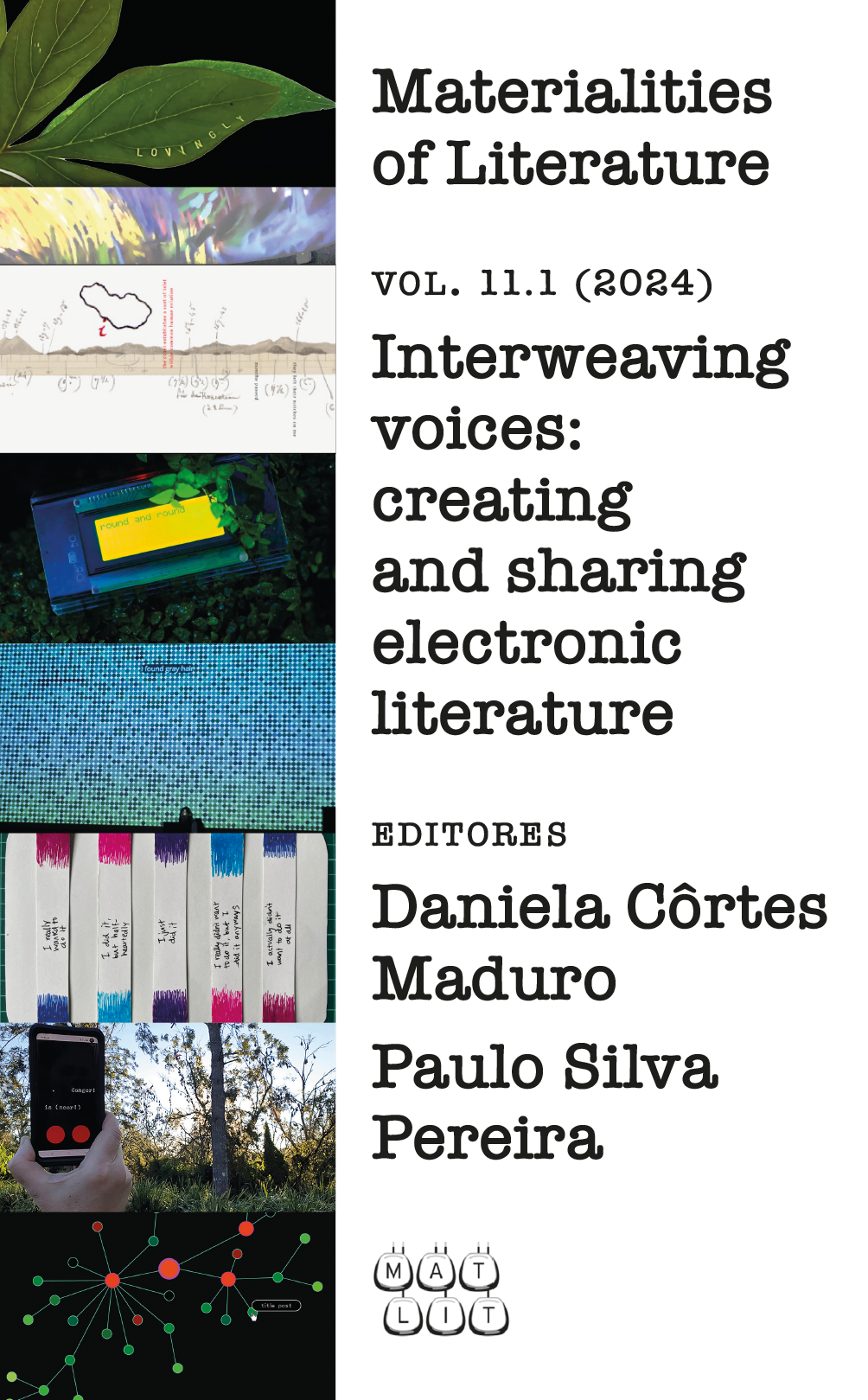I pluck — contemplating dyeing and ageing through Gray hairs
DOI:
https://doi.org/10.14195/2182-8830_11-1_4Keywords:
feminist ageing, gray hairs, digital writing art, practice-based researchAbstract
It was only in my late 30s that I realised that most of the women around me dye their hair. I began to scrutinize my own hair and found many gray hairs amongst my dark brown ones. I started to wonder why women’s gray hair is so invisible. I wrote Gray hairs and realised that to choose not to dye is an act of resistance to both age and gender-based oppression and discrimination. This article is a practitioner reflection on Gray hairs. I begin by contextualizing the work, and then I reflect on some of the comments that people made when I shared Gray hairs with them. Finally, I look at how the visual, process-based elements and interaction through clicking (as plucking) of gray hairs complement the written elements.
Downloads
References
CANDY, Linda (2019). The creative reflective practitioner — research through making and practice. London and New York: Routledge.
CECIL, Vanessa, PENDRY, Louise F., SALVATORE, Jessica & KURZ, Tim (2018). “Women’s grey hair as an abomination of the body — conceal and pass, or reveal and subvert.” In Feminist Interrogations of Women’s Head Hair: Crown of Glory and Shame, edited by Sigal Barak-Brandes and Amit Kama, 124–140. London and New York: Routledge.
FISHER, Caitlin. (2023) Introductory remarks to the performance of Gray hairs at ELO 2023 performances, July 12th at Teatro Académico Gil Vicente. Author’s notes.
GERIKE, Ann E. (1990). “On Gray Hair and Oppressed Brains.” Journal of Women & Aging 2, no. 2: 35-46.
GONSALVES, Florence & HODES, Amanda (2023). “Spring 2023 Editors’ Note.” The New River Journal. https://thenewriver.us/s23note/
MARTTILA, Terhi (2023a). Gray hairs. Artwork for browser. In The New River. https://thenewriver.us/2407-2/.
MARTTILA, Terhi (2023b) “These Gray Hairs Really Scream Out at me: the Confessional I and Autofiction as Feminist Writing in Gray Hairs.” Journal of Science and Technology of the Arts 15, no.2: 18–44.
ROBINSON, Claire (2016). “Greying is a feminist issue.” In The Journal of Urgent Writing 2016, edited by Nicola Legat, 154–169. Auckland: Massey University Press.
Downloads
Published
How to Cite
Issue
Section
License
Copyright (c) 2025 Terhi Marttila

This work is licensed under a Creative Commons Attribution 4.0 International License.
MATLIT embraces full open access to all issues. Authors who publish with this journal agree to the following terms:
- Authors retain copyright and grant the journal right of first publication with the work simultaneously licensed under a Creative Commons Attribution- 4.0 International (CC BY 4.0) that allows others to share the work with an acknowledgement of the work's authorship and initial publication in this journal.
- Authors are able to enter into separate, additional contractual arrangements for the non-exclusive distribution of the journal's published version of the work (e.g., post it to an institutional repository or publish it in a book), with an acknowledgement of its initial publication in this journal.
- Authors are permitted and encouraged to post their work online (e.g., in institutional repositories or on their website) prior to and during the submission process, as it can lead to productive exchanges, as well as earlier and greater citation of published work (See The Effect of Open Access).
- A CC licensing information in a machine-readable format is embedded in all articles published by MATLIT.
- Attribution — You must give appropriate credit, provide a link to the license, and indicate if changes were made. You may do so in any reasonable manner, but not in any way that suggests the licensor endorses you or your use.
- No additional restrictions — You may not apply legal terms or technological measures that legally restrict others from doing anything the license permits.
Notices:
- You do not have to comply with the license for elements of the material in the public domain or where your use is permitted by an applicable exception or limitation.
- No warranties are given. The license may not give you all of the permissions necessary for your intended use. For example, other rights such as publicity, privacy, or moral rights may limit how you use the material.




